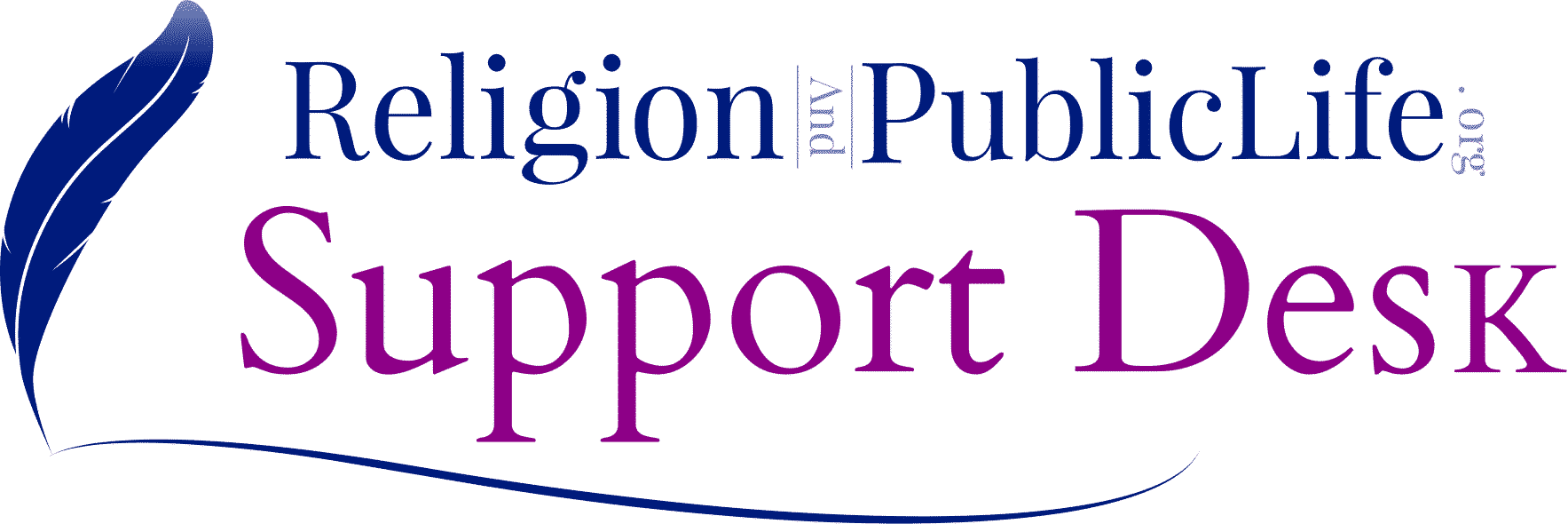Civic Education for a Common Good
ReligionAndPublicLife.org is a social learning community based on the premise that religiously literate and legally literate professionals are uniquely positioned to promote the common good through civic education. We define religious literacy as not mere knowledge about religions. It is a knowledge base plus a professional skillset that inspires an emphatic disposition to dialogue across differences. We define legal literacy as fluency in not only knowing the constitutional and human rights protections afforded to all people but the virtuous commitment to defend those rights for people other than ourselves.
As an extension of our charitable mission, we designed ReligionAndPublicLife.org to have the following three features. It is a:
- Social network, similar to LinkedIn, that connects young adults, college students, and professionals through sharing profiles, joining clubs, and messaging one another through our companion app;
- Learning management system that allows contributors to build on-demand and live courses, as well as publish digital resources to serve as textbooks to supplement onsite teaching; and an
- E-commerce platform that allows contributors to advertise their services (e.g., speaking, consulting, training) and products (e.g., certificate programs, books, research reports, lesson plans).
These features expose members of the community to a rich network of professionals. Our courses and certificate programs empower individuals with professional development opportunities and enrich post-secondary institutions with timely and timeless curricula. Our platform empowers scholars of religion and nonprofit organizations to expand their audiences. Overall, ReligionAndPublicLife.org advances the public understanding of religion while serving as a job creator, ensuring the field’s financial sustainability.
The First Amendment and human rights educators at 1791 Delegates build ReligionAndPublicLife.org to model how civic education can serve a common good.
Given our reach into public schools, we ensure that our courses are Constitutionally friendly. We apply the U.S. Department of Education’s Consensus Statements about Constitutional Approaches for Teaching about Religion:
▸ Our approach to religion is academic, not devotional;
▸ We strive for student awareness of religions, but do not press for student acceptance of any religion;
▸ We sponsor the study about religion, not the practice of religion;
▸ We expose students to a diversity of religious views, but may not impose any particular view;
▸ We educate about all religions, we do not promote or denigrate any religion;
▸ We inform students about religious beliefs and practices, it does not seek to conform students to any particular belief or practice.
We apply the American Academy of Religion’s “Religious Literacy Guidelines”
▸ “Religious Literacy Guidelines for College Students.” American Academy of Religion, 2019.
▸ “Teaching About Religion: AAR Guidelines for K-12 Public Schools.” American Academy of Religion, April 2010.
We apply the National Council for the Social Studies C3 Frameworks for Religious Studies
▸ College, Career, and Civic Life (C3) Framework for Social Studies State Standards, “Religious Studies Companion Document for the C3 Framework.” Silver Spring, MD: National Council for the Social Studies, 2017.
Overall, 1791 Delegates promote two fundamental civic competencies: legal literacy and religious literacy. Each competency requires that we use distinct academic approaches, which we supplement with innovative e-learning pedagogies.
Nate Walker is the author of this solution article.
Did you find it helpful? Yes No




